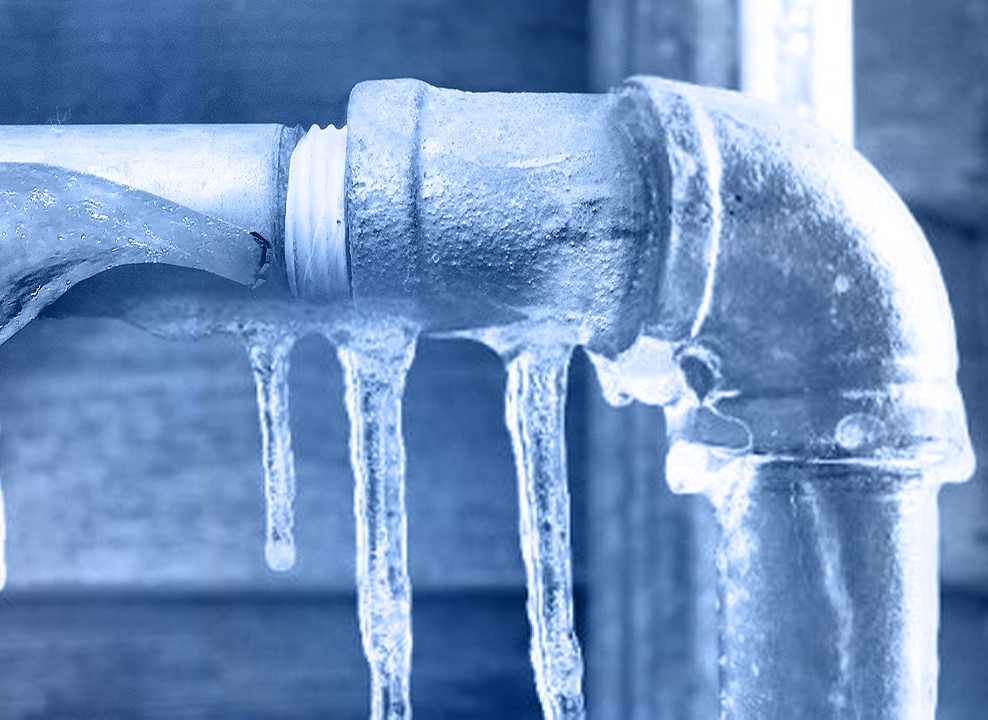Protecting Against Frozen Plumbing: Effective Tips for Cold Weather
Protecting Against Frozen Plumbing: Effective Tips for Cold Weather
Blog Article
Just how do you feel in relation to Winter Plumbing Precautions: Preventing Frozen Pipes?

Winter can damage your plumbing, particularly by freezing pipes. Here's just how to prevent it from happening and what to do if it does.
Intro
As temperature levels decline, the risk of icy pipelines increases, possibly resulting in pricey repairs and water damage. Comprehending exactly how to avoid icy pipelines is critical for house owners in cold environments.
Recognizing Icy Pipes
What creates pipelines to ice up?
Pipelines ice up when revealed to temperature levels below 32 ° F (0 ° C) for extended periods. As water inside the pipes freezes, it increases, putting pressure on the pipe walls and potentially triggering them to burst.
Threats and damages
Icy pipelines can cause water system disturbances, property damages, and pricey repairs. Ruptured pipes can flooding homes and create substantial structural damages.
Indications of Frozen Piping
Identifying icy pipelines early can avoid them from breaking.
Just how to recognize icy pipelines
Try to find reduced water flow from faucets, uncommon odors or noises from pipelines, and noticeable frost on revealed pipelines.
Prevention Tips
Insulating susceptible pipelines
Cover pipelines in insulation sleeves or use heat tape to safeguard them from freezing temperature levels. Focus on pipes in unheated or exterior locations of the home.
Heating strategies
Keep indoor spaces sufficiently heated up, particularly locations with pipes. Open up closet doors to permit warm air to circulate around pipes under sinks.
Safeguarding Outdoor Plumbing
Yard hose pipes and exterior faucets
Disconnect and drain garden pipes prior to winter months. Set up frost-proof faucets or cover outside faucets with insulated caps.
What to Do If Your Pipes Freeze
Immediate activities to take
If you suspect frozen pipes, keep taps open to relieve pressure as the ice thaws. Use a hairdryer or towels soaked in warm water to thaw pipes slowly.
Long-Term Solutions
Architectural modifications
Take into consideration rerouting pipelines away from outside walls or unheated locations. Include extra insulation to attic rooms, cellars, and crawl spaces.
Upgrading insulation
Buy high-quality insulation for pipelines, attics, and walls. Correct insulation aids keep consistent temperature levels and reduces the risk of frozen pipes.
Conclusion
Preventing icy pipelines needs proactive measures and quick reactions. By comprehending the causes, signs, and preventive measures, property owners can shield their pipes during cold weather.
Helpful Tips to Prevent Frozen Pipes this Winter
UNDERSTANDING THE BASICS: WHY PIPES FREEZE AND WHY IT’S A PROBLEM
Water freezing inside pipes is common during the winter months, but understanding why pipes freeze, and the potential problems it can cause is crucial in preventing such incidents. This section will delve into the basics of why pipes freeze and the associated problems that may arise.
THE SCIENCE BEHIND FROZEN PIPES
When water reaches freezing temperatures, it undergoes a physical transformation and solidifies into ice. This expansion of water as it freezes is the primary reason pipes can burst. As the water inside the pipe freezes, it expands, creating immense pressure on the walls. If the pressure becomes too great, the pipe can crack or rupture, leading to leaks and water damage.
FACTORS THAT CONTRIBUTE TO PIPE FREEZING
Low Temperatures: Extremely cold weather, especially below freezing, increases the risk of pipes freezing. Uninsulated or Poorly Insulated Pipes: Pipes located in unheated areas, such as basements, crawl spaces, or attics, are more prone to freezing. Insufficient insulation or lack of insulation altogether exacerbates the problem. Exterior Wall Exposure: Pipes running along exterior walls are susceptible to freezing as they encounter colder temperatures outside. Lack of Heating or Temperature Regulation: Inadequate heating or inconsistent temperature control in your home can contribute to frozen pipes. PROBLEMS CAUSED BY FROZEN PIPES
- Pipe Bursting: As mentioned earlier, the expansion of water as it freezes can cause pipes to burst, resulting in significant water damage.
- Water Damage: When pipes burst, it can lead to flooding and water damage to your property, including walls, ceilings, flooring, and personal belongings.
- Structural Damage: Prolonged exposure to water from burst pipes can compromise the structural integrity of your home, leading to costly repairs.
- Mold and Mildew Growth: Excess moisture from water damage can create a favorable environment for mold and mildew growth, posing health risks to occupants.
- Disrupted Water Supply: Frozen pipes can also result in a complete or partial loss of water supply until the issue is resolved.
WHY CERTAIN PIPES ARE MORE PRONE TO FREEZING
- Location: Pipes located in unheated or poorly insulated areas, such as basements, crawl spaces, attics, or exterior walls, are at higher risk of freezing.
- Exterior Pipes: Outdoor pipes, such as those used for irrigation or exposed plumbing, are particularly vulnerable to freezing as they are directly exposed to the elements.
- Supply Lines: Pipes that carry water from the main water supply into your home, including the main water line, are critical to protect as freezing in these lines can affect your entire plumbing system.
- Underground Pipes: Pipes buried underground, such as those connected to sprinkler systems or outdoor faucets, can be susceptible to freezing if not properly insulated.
https://busybusy.com/blog/helpful-tips-to-prevent-frozen-pipes-this-winter/
:strip_icc()/snow-outdoor-faucet-pipes-4af65d1e5e904fb1aa7bf74071fe5d89.jpg)
Do you like more info about How to Prevent Your Pipes From Freezing? Make a comment down below. We will be glad to listen to your ideas about this write up. Hoping that you visit us again in the future. If you enjoyed our article plz be sure to share it. I love your readership.
Get Your Estimate Now Report this page